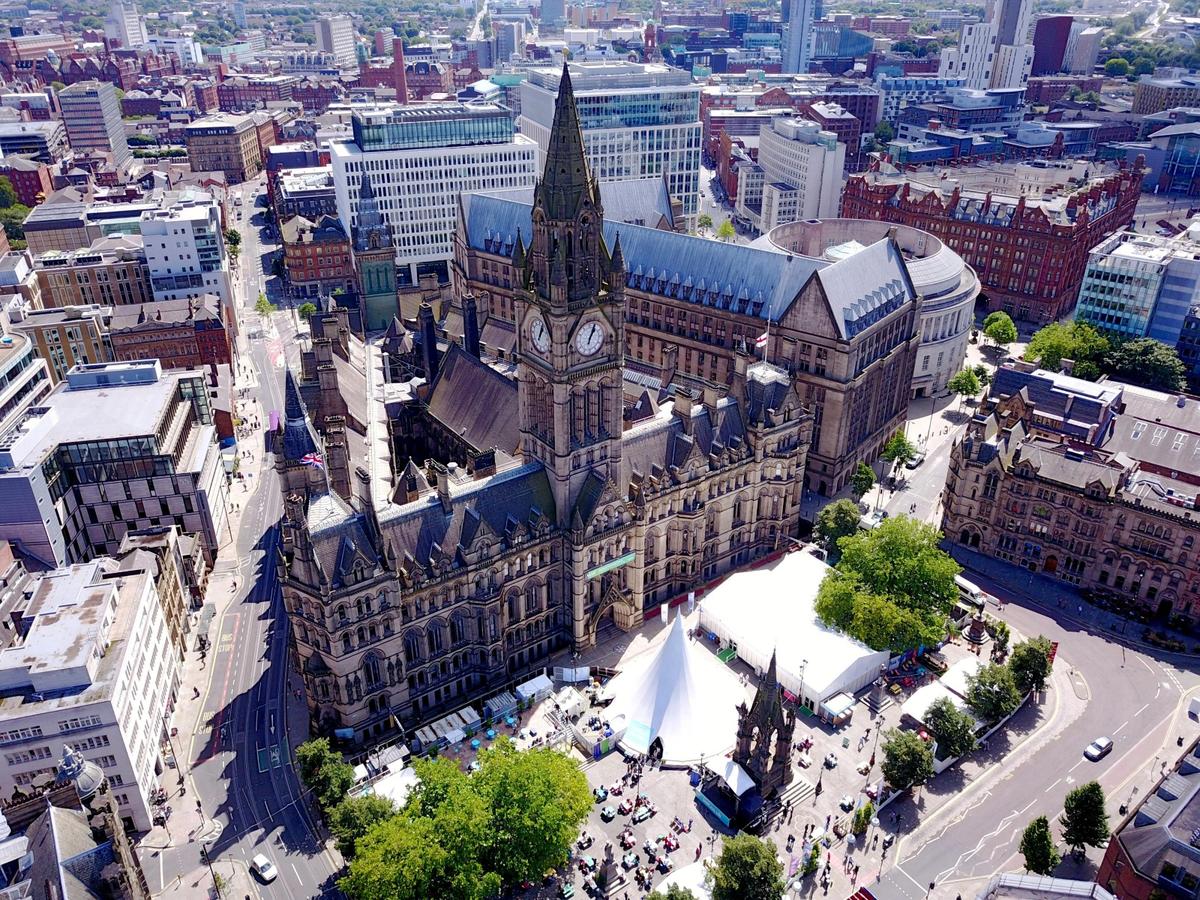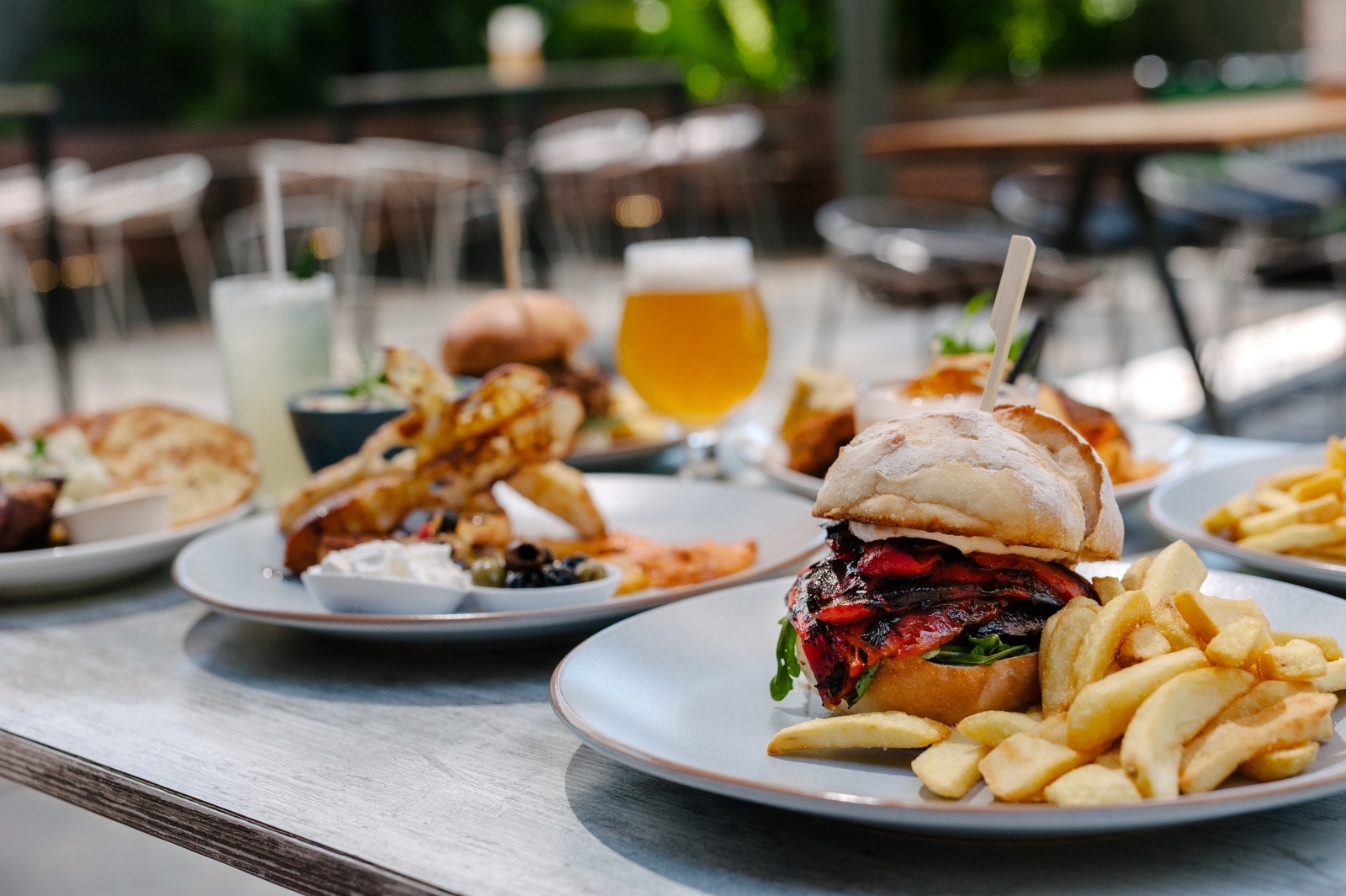What Manchester is Famous For
The largest metropolis in northwestern England, Manchester certainly has plenty to boast of– cosmopolitan, architecturally breathtaking, and culturally vivacious, the city is a site of countless seismic shifts in history and pop culture, and undoubtedly a shining gem in England’s crown. Read on to discover what makes Manchester so special.


1. Paradigm Shifts in History: The Industrial Revolution and the Suffragette Movement
Industrial Revolution
Manchester takes pride in being the world’s first industrial city. It blossomed into the urban district we know today in the early 19th century when its cotton industries sparked the town’s expansion.
As a vital cog in the manufacturing and trade network of the cotton and textiles industry, Manchester was at the forefront of the country’s industrial revolution. Furthermore, it was the site of the world’s first-ever railway line, which was developed in 1830. The town also witnessed the United Kingdom’s first working canal in 1761.
Manchester’s remarkable manufacturing evolution and technological prowess have been beautifully documented in the city’s Science and Industry Museum.
The Suffragette City
Manchester also nurtured significant social developments that ultimately had sweeping impacts globally – it was here that women’s fight for equal rights took off.
Socially caged and devoid of voting rights, Moss Side-born Emmeline Pankhurst founded the Women's Social and Political Union to lead the Suffragettes Movement. It is important to note that the feminist fight began long before Emmeline Pankhurst entered the picture. However, unfortunately, the older movement’s rigidly constitutional means stagnated the revolution; this inspired Pankhurst to revolt differently.
2. Miscellany of Pop Culture: Music Revolutions and the Longest Running TV Show
The Music Scene
The musicians of Manchester truly transformed the English music landscape. In the late 1980s, there was a trend of meshing together various genres such as 1960s pop, acid house, and rave music – this phenomenon came to be known as the “Manchester Scene.”
The city also birthed cult classic bands such as The Smiths, The 1975, The Stone Roses, and Oasis. Furthermore, Factory Records, an independent music label that was founded in Manchester, truly vivified and globalised the English punk scene – bands such as A Certain Ratio, Durutti Column, and the like were on its roster.
The Television Classic
Coronation Street is a famous British soap opera that first aired on December 9, 1960. It is in production to this day, making it the world’s longest-running television show.
The show has always been filmed in Manchester, casting the city’s cultural net far and wide. Humorously depicting the everyday lives of Manchester’s working-class individuals, the show has endured as a household favourite for six decades.
3. An Intellectual Haven: Education and Historic Libraries
University of Manchester
The University of Manchester is one of the country’s most multicultural and reputed educational institutions. It also testifies to the city’s scientific advancements – it was here where nuclear energy and radiotherapy were developed. The first modern computer was invented within the walls of this establishment in 1948.
Chetham’s Library
Founded in 1653, Chetham’s Library is the world’s oldest English-speaking library. It houses 100,000 volumes of printed books, of which 60,000 were published before 1851. These scripts include 16th- and 17th-century journals, periodicals, posters, historical sources, 1000 manuscripts, and 41 mediaeval texts.
4. Football Fandom
Manchester is synonymous with football, given its pivotal role in the Premier League. It is the home base of two major football clubs – the blue-hued Manchester City and the proudly sanguine Manchester United.
Deeply entrenched in the spirit of the game, rivalry, and sportsmanship run deep in the city’s veins. The National Football Museum has depicted the history of the game in Manchester, besides aptly capturing its residents’ profound love for the sport.
5. An Unmissable Shopping Retreat
Manchester presents a treasure trove of high-end shopping districts, poised to tease the fancies of a boujee shopaholic. The most famous shoppers’ stop, however, is Manchester Arndale, the one-stop designer destination hosting over 200 stores. With high-end retail brands, exclusive labels, an eclectic food court, and a plethora of leisure activities, the Manchester Arndale is one of the country’s leading malls.
The Trafford Centre, Exchange Square, and Market Street are other shopping quarters flaunting unmatched access to posh brands. The Jewellery Quarter is a nationwide household name, renowned for its timeless vintage pieces as well as contemporary creations.
For off-beat finds, people flock to the Northern Quarter, which is abounding with vintage stores and shabby chic cafes.
6. A Luxuriant Cityscape
Notwithstanding Manchester’s urban appeal, the city’s green spaces defy its purely tech-fangled repute. Heaton Park sprawls 600 acres and is one of Europe’s largest municipal parks. Cotton Field Park, Mayfield Park, and Bridgewater Hall Canalside are some of England’s most popular green space trails.
Manchester stands tall as a symbol of England’s social, political, cultural, and scientific progress. It is undeniable that many of the world’s fortunes took root and flourished here. As such, Manchester is more than a city or a holiday destination – it is an intimate odyssey through the history of the modern world.



